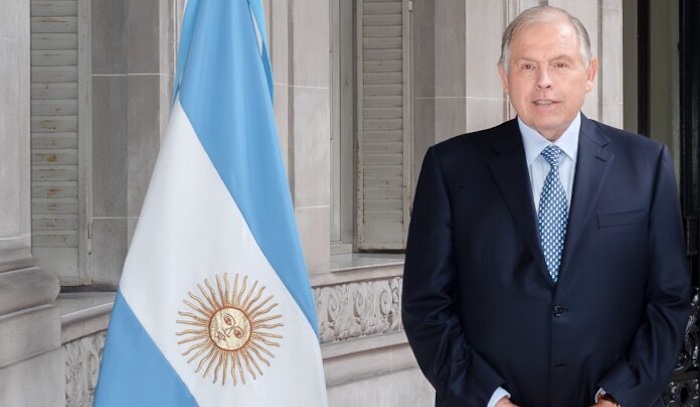World
Argentina’s Foreign Minister Gerardo Werthein Resigns Before Elections

Argentina’s Foreign Minister, Gerardo Werthein, has resigned from his position just days ahead of critical legislative elections, as announced by the presidential office on March 6, 2024. This marks the second resignation of a foreign minister under President Javier Milei‘s administration, raising questions about the stability of the government as it navigates a turbulent political landscape.
Local media reports indicate that Werthein had originally intended to resign after the elections, which are scheduled for March 10, 2024. Instead, he submitted his resignation late on March 5, 2024. During his nearly one-year tenure, Werthein, who previously served as Argentina’s ambassador to the United States, succeeded Diana Mondino, the first foreign minister dismissed for supporting a resolution to lift the US embargo on Cuba at the United Nations.
Political Context and Implications
Werthein’s resignation comes at a pivotal moment for President Milei’s libertarian party, which is aiming to bolster its minority representation in Congress. This legislative vote is crucial for the administration as it seeks to implement its ambitious austerity and economic reform agenda. The government has faced increasing public dissatisfaction over severe spending cuts that have disproportionately affected vulnerable populations, alongside a recent corruption scandal that has further eroded public trust.
In light of the upcoming elections, President Milei has hinted at a potential cabinet reshuffle, a move that could reshape government strategy following the midterms. The political uncertainty surrounding Werthein’s exit adds to the challenges faced by the administration as it attempts to maintain economic recovery while ensuring political stability both domestically and internationally.
International Relations and Financial Considerations
Argentina is currently under significant international scrutiny, particularly from the United States, which has linked its ongoing financial support to the outcomes of the elections. The US Treasury has agreed to a $20 billion currency swap with Argentina and is reportedly preparing an additional $20 billion facility involving banks and investors. This financial backing is crucial as the country grapples with economic challenges.
The administration’s efforts to balance economic recovery with political stability will be tested in the coming days, as the legislative elections could redefine the power dynamics within Congress. Werthein’s departure not only reflects the internal pressures within the government but also signals the broader implications for Argentina’s international relations and financial future.
As the elections approach, all eyes will be on President Milei’s next moves and the potential impact on Argentina’s governance and economic strategy.
-

 Entertainment2 months ago
Entertainment2 months agoAnn Ming Reflects on ITV’s ‘I Fought the Law’ Drama
-

 Entertainment3 months ago
Entertainment3 months agoKate Garraway Sells £2 Million Home Amid Financial Struggles
-

 Health2 months ago
Health2 months agoKatie Price Faces New Health Concerns After Cancer Symptoms Resurface
-

 Entertainment2 months ago
Entertainment2 months agoCoronation Street’s Carl Webster Faces Trouble with New Affairs
-

 Entertainment2 months ago
Entertainment2 months agoWhere is Tinder Swindler Simon Leviev? Latest Updates Revealed
-

 Entertainment3 months ago
Entertainment3 months agoKim Cattrall Posts Cryptic Message After HBO’s Sequel Cancellation
-

 Entertainment2 months ago
Entertainment2 months agoOlivia Attwood Opens Up About Fallout with Former Best Friend
-

 Entertainment2 months ago
Entertainment2 months agoMasterChef Faces Turmoil as Tom Kerridge Withdraws from Hosting Role
-

 Entertainment3 months ago
Entertainment3 months agoSpeculation Surrounds Home and Away as Cast Departures Mount
-

 World2 months ago
World2 months agoCole Palmer’s Mysterious Message to Kobbie Mainoo Sparks Speculation
-

 Entertainment3 months ago
Entertainment3 months agoMarkiplier Addresses AI Controversy During Livestream Response
-

 Entertainment2 months ago
Entertainment2 months agoITV’s I Fought the Law: Unraveling the True Story Behind the Drama





















